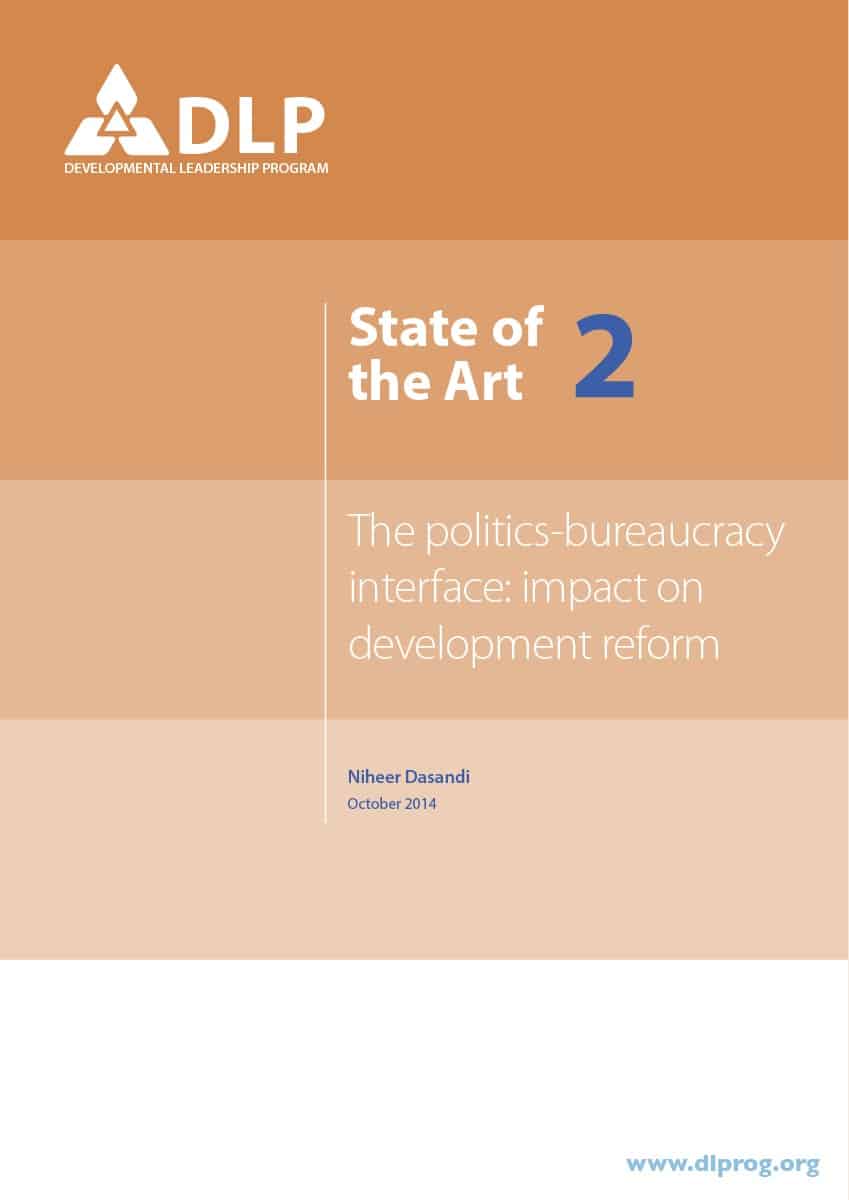This paper provides an in-depth review of the existing research on the relationship between political and bureaucratic leaders in developing countries, the factors that shape this relationship, and the impact it has on the success and failure of reforms.
The findings suggest that political-bureaucratic relations that support successful reform often involve:
- a core group of political and bureaucratic leaders who work closely together and share development-centred values and aims;
- bureaucrats who have unusually high levels of influence in designing policy; and
- strong political leadership promoting the reform.










